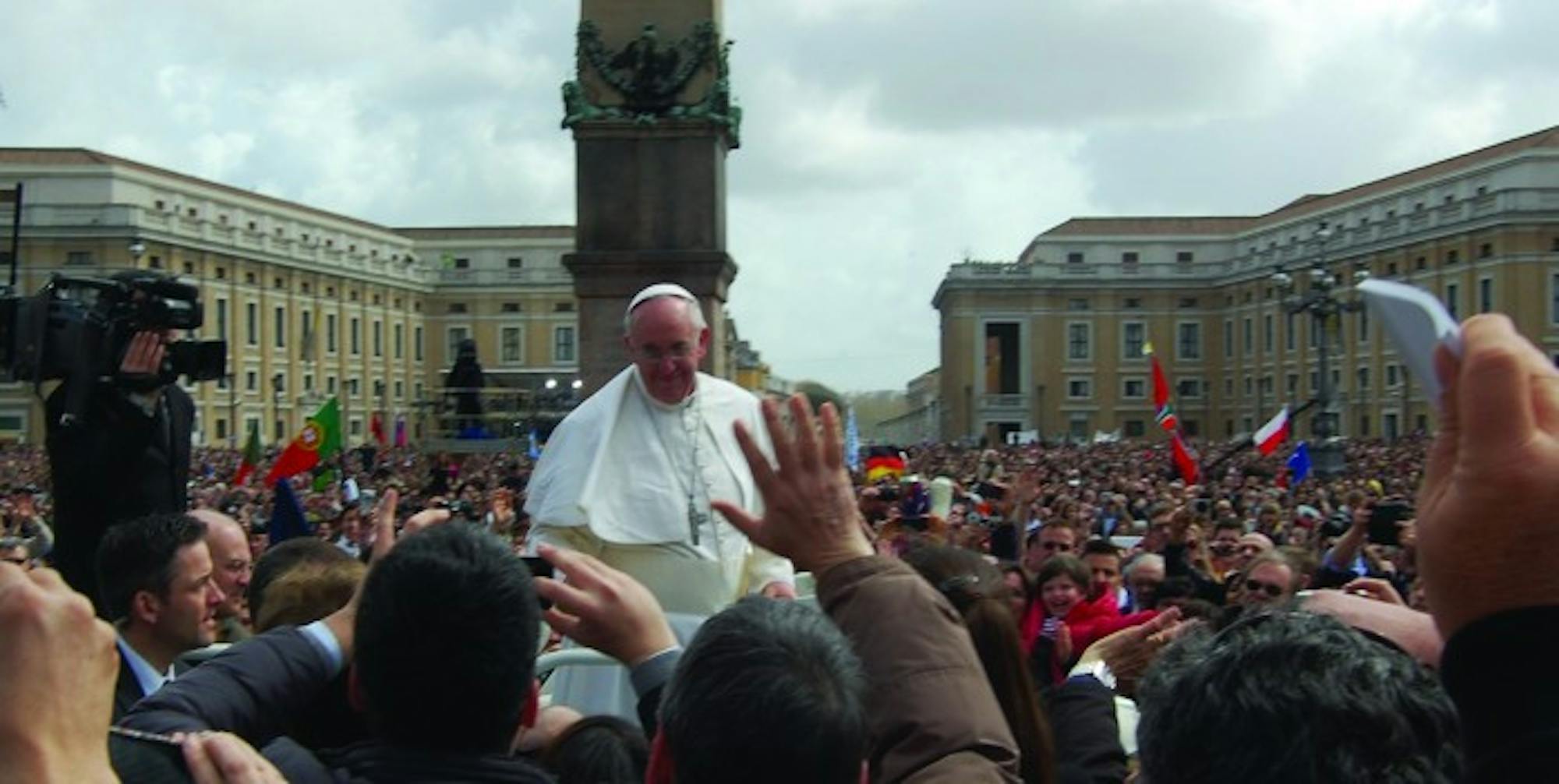Pope Francis’ recently released list of 19 men who will soon become cardinals included a Notre Dame graduate and bishops from Haiti and Burkina Faso, highlighting the current patriarch’s commitment to pastoral leadership and inclusion of the poor, director of Notre Dame’s Institute for Church Life John Cavadini said.
“[Pope Francis] appointed cardinals from places that have never had a cardinal before … and
that certainly indicates the desire to reach out,” Cavadini said.
Pope Francis’ list of new cardinals included Kelvin Edward Felix, archbishop emeritus of Castries, according to the National Catholic Reporter. Felix received a master of arts degree from Notre Dame in 1969, according to the Notre Dame Alumni Association.
“Of course he wasn't elected because he is a Notre Dame alum, but because of his servant leadership in the Church for many years as bishop,” Cavadini said. “But it certainly shows [Notre Dame] can produce Church leaders.”
Lawrence Cunningham, Church historian and theology professor, said the pope’s attention to marginalized countries will allow those regions of the world the possibility of participating in the College of Cardinals’ main responsibility, naming a new pope.
“It’s usually around this time of year, the beginning of the year, that the pope typically nominates bishops and archbishops to the College of Cardinals,” Cunningham said. “One of the reasons he does that is to be sure that the Catholic world is represented in the College of Cardinals because the most important thing that the College does is to elect a new pope.
“The most interesting thing … was the fact that he named a cardinal from Haiti and a cardinal from Burkina Faso. Burkina Faso is one of the poorest, most wretched countries in Africa, and I think that that was done so that those bishops will have in the College of Cardinals a voice for the forgotten part of the world, not the third world but basically the fourth world, or the poorest countries of the world.
“The most important thing is that it says something about [Francis’] tremendous concern for the poor of the world.”
Cavadini said Pope Francis’ appointments of Archbishop Philippe Ouèdraogo of Burkina Faso and Bishop Chibly Langlois of Haiti reflected his attempt to promote the Church’s core mission.
“Pope Francis wants to emphasize that the Church is not really here for its own sake, not here for itself,” Cavadini said. “The Church is here to serve. The Church is here to be a witness to God's love and that means especially in places where that love seems to be most absent
.
“In one sense, [Francis] wants the whole Church to be a church of witness to the belief that God is love and so loved the world that he sent his only
begotten son.”
Cavadini said Pope Francis had continued Pope Benedict’s return to the fundamentals of the Catholic faith, but Francis’ commitment to pastoral ministry signified a different approach.
“Pope Benedict
had a lot of concern for getting back to basics of the faith like God is love; that was his first encyclical,” Cavadini said. “
What Pope Francis is really doing is translating that into a pastoral strategy.
“So if you’re going to propose to get back to basics that God is love, then you should have a pastoral strategy that organizes the Church according to those principles more obviously.”
Cavadini said the pope had set an example of his own emphasis on pastoral outreach by reaching out more frequently to those in his own archdiocese.
“He adds a kind of personal touch to this,” Cavadini said. “I think he kind of expects us to have that touch.
“For example,
he says Mass every morning where he lives in the Domus Sanctae Marthae, in the [Vatican] guesthouse, for just regular people from the Archdiocese of Rome. In other words, he’s
emphasizing that he's the Bishop of Rome.”
Cunningham said few of the bishops or archbishops on Francis’ list surprised those who follow Vatican decisions closely since the bishops and archbishops of certain major cities or regions almost always become cardinals.
“He named a Canadian, but no one from the United States, and that’s because the places where you traditionally find cardinals named are already cardinals,” Cunningham said. “For example, if you become the Archbishop of New York, unless you do something egregiously stupid or egregiously immoral, you’re going to be named a cardinal.”













